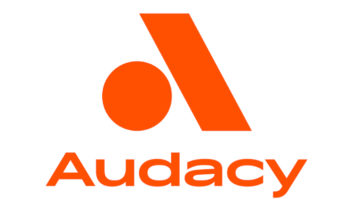The road ahead for Audacy will soon become clearer once the company receives regulatory approval from the FCC to exit bankruptcy following its financial reorganization. That’s when a new Audacy board will be installed and a decision will be made on CEO David Field’s future.
The new ownership group — including the banks that took a major haircut to reduce Audacy’s $1.9 billion debt down by nearly 80% to $350 million — will take control of the board, analysts say. A new board could be in place by Audacy’s annual shareholders meeting, which is typically held in May, though no date for this year’s meeting has been announced.
When the annual shareholders meeting does take place, it will include the holdover secured creditors and Soros Fund Management, which swallowed up $415 million of Audacy debt during the reorganization, becoming the broadcaster’s largest shareholder.
[Related: “Bankruptcy Court Approves Audacy’s Reorganization Plan“]
Craig Huber of Huber Research Partners says that, under terms of the Chapter 11 reorganization, Audacy’s senior debt holders swapped that debt for an ownership stake. The new owners could choose new leadership for the C-suite.
The chances of Audacy retaining Field as CEO “are extremely low, in my opinion,” Huber said.
A new management team could be led by someone who knows digital and broadcast, Huber says. “Somebody who has and could do both ideally, but that’s easier said than done.”
Field blamed a “perfect storm of macroeconomic challenges” for the bankruptcy first reported in early January, but Audacy has been swamped with debt since the 2017 acquisition of CBS Radio that brought with it $1.5 billion in new debt, analysts say.
Trimming expenses will likely be the focus of whoever takes over at Audacy, Huber says.
“Cost-cutting for sure, and a lot more than outgoing management did. Major cost-cutting, which includes headcount reductions, unfortunately,” Huber told Radio World in an email.
Audacy recently named Dave Pugh as senior VP/market manager for the company’s Seattle cluster. Pugh will remain in his current role as senior VP/market manager for Audacy’s Phoenix group of stations. Pugh succeeds Jack Hutchinson, who previously had announced his retirement from the company.
Huber says he expects more downsizing of staff as the company emerges from Chapter 11 reorganization. There also will likely be more “centralized developing of content, a sell-off excess real estate where they can and lease back what’s needed, etc.,” Huber said.
[Related: “Audacy to Sell Boston Real Estate for Cash“]
George Soros, the liberal philanthropist whose foundation is run by son Alex, is likely to become a force to be reckoned with as the largest shareholder. Huber said that if Soros is tempted to push for a shift in programming direction, as some analysts have suggested, he’d have to tread lightly.
“Soros will need to be careful changing the content dramatically on the radio stations … listenership typically gets dramatically worse when making huge changes to radio content people are used to. People are creatures of habit with radio and TV,” Huber said.
Audacy common stock has continued to trade over-the-counter under the symbol “AUDA” throughout the reorganization process. The shares are expected to be canceled and receive no distribution as part of Audacy’s restructuring, according to the company.
A list of Audacy’s top 30 unsecured creditors as of Mar. 7, 2024, obtained by Radio World, includes AdsWizz, CBS Interactive, iHeartMedia Entertainment, Katz Media Group, Spotify, Sound Exchange, SESAC Rights Management Inc., the Radio Music License Committee and WideOrbit. It’s unclear how much the unsecured creditors are owed.









